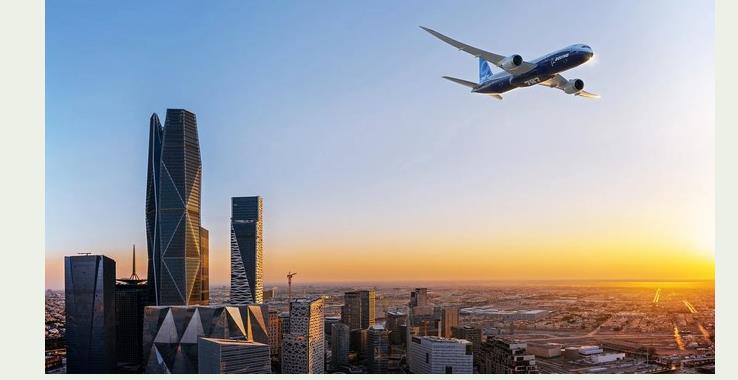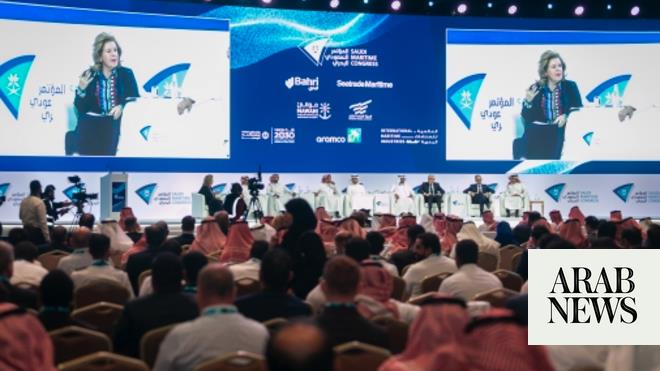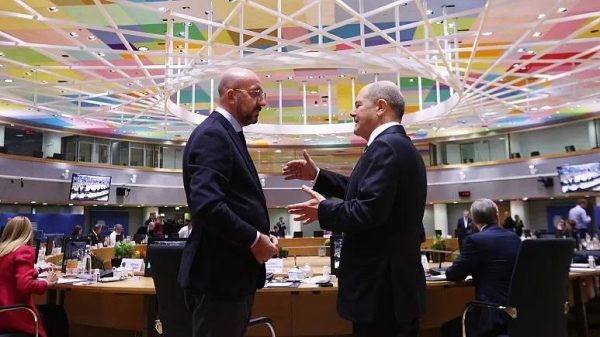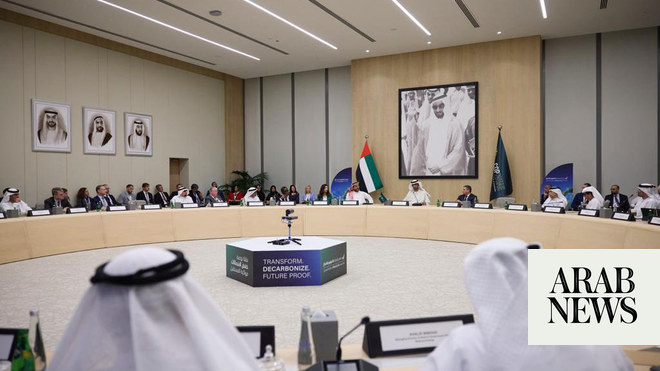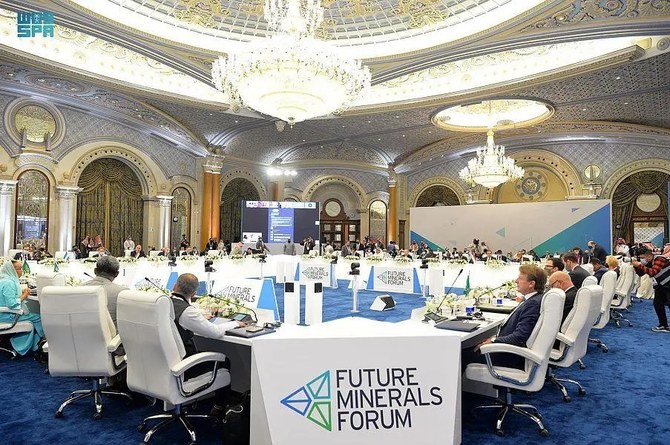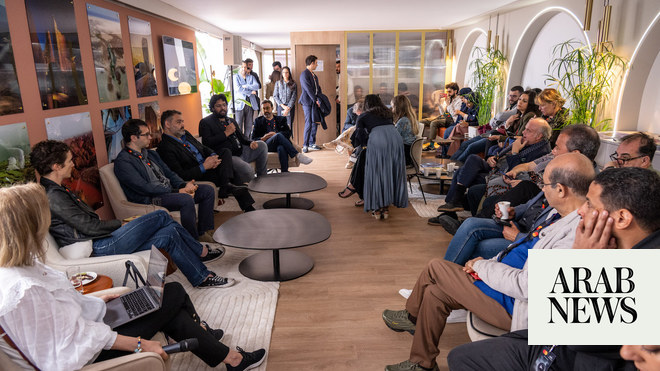
As the Saudi Film Council welcomed guests to its pavilion at the Marché du Film on the festival’s third day, leaders from the region’s film industry gathered to discuss the country as a gateway to new distribution opportunities.
Fadi Ismail believes that, while international players will come in to support local talent, there should be a government mandate to make sure that Saudi talent is involved in all projects produced in and by the Kingdom.
CANNES: “This is a brave new world,” Fadi Ismail, director of group drama, production and distribution at MBC, told Arab News at the Cannes Film Festival on Thursday.
Indeed it is. As the Saudi Film Council welcomed guests to its pavilion at the Marché du Film on the festival’s third day, leaders from the region’s film industry gathered to discuss the country as a gateway to new distribution opportunities, surrounded by a captivated audience of delegates, filmmakers and other major players.
In a panel moderated by Variety’s Nick Vivarelli, Ismail was joined by Cameron Mitchell, CEO of Majid Al Futtaim Cinemas, and owner/operator of Vox Cinemas, and Pierre Rasamoela of Orange Studio, a French film production company, to discuss what the future of Saudi Arabia’s burgeoning film industry will look like from each of their perspectives.
Speaking on the sidelines of the panel, Ismail told Arab News that, to him, the priority begins getting a home-grown Saudi film industry up and running.
“It all starts with the stories,” Ismail told Arab News. “We’re on a campaign to find ideas, write ideas, develop content, develop scripts, on the basis for which you can make all the plans in the world to produce. You cannot produce if you do not have a story to tell.
“There’s an opportunity to fill the gap in the entertainment industry with Saudi content— film and TV. We want to do that. MBC was always a pioneer. We want to do that as well with more drama, making a quantitative difference in the drama’s production values and the storytelling as well as embark on this beautiful adventure of filmmaking, which is new to us, but worth taking and worth taking very seriously,” Ismail said.
In his view, Saudi’s film industry does not have time to develop organically— it must be developed in conjunction with the global film community. “There is nothing more important than growing the local talent pool and base. That doesn’t have to be exclusive in the sense that parallel to that, we can engage with international players, because at the end of the day, local talent isn’t and shouldn’t be made just for local storytelling. It has to be a multi-track campaign on different fronts.”
Ismail believes that, while international players will come in to support local talent, there should be a government mandate to make sure that Saudi talent is involved in all projects produced in and by the Kingdom. “I think this is a must, because if you don’t do that, things may take more time than you’d like to, and we can’t afford to waste more time.”
Ismail responded that he didn’t know whether there will be a place for the region’s distributors, such as Empire, Shooting Stars, or Italia Film, in Saudi Arabia moving forward, or whether there could be a unified body that would take care of film distribution in the Kingdom, or whether that could potentially be MBC.
As far as content is appropriate for Saudi Arabia’s cinemas, he echoed what Cameron Mitchell said on the morning’s panel.
“Listen, like my friend, the CEO of Vox, mentioned, you will not expect Saudi to show films whose themes are erotic, sexual or anti-religious, because while that is fair game in Europe and the US, that’s not what’s going to attract Saudi audiences. What’s going to attract Saudi Audiences is what attracts most of the world— series and content and films about family, about comedy, about social relationships, about action, about fantasy and science fiction,” he said.
Ismail takes credit for bringing Turkish drama to the global stage, as he was the one who brought Turkish drama to the Arab world through MBC. He believes that Saudi Arabia’s content will and should be the next to make bigger waves across the world, and it could be a major factor in influencing people’s opinions about the Saudi Arabian people and the Arab world.
“I think the power of drama, whether it is TV drama or in the cinema, is second to none. I think it is influential, potent tool that has to be used in today’s world by anyone who is aiming to change perceptions, anyone who wants to change stereotypes about Arabs, about Muslims and about Saudis in particular. That’s why here is no better tool than the storytelling that is in drama, and you have to make that reach the world. If you just make that reach the world, because if you make it just to your local audience, you’re preaching to the converted. That doesn’t help anything.”






